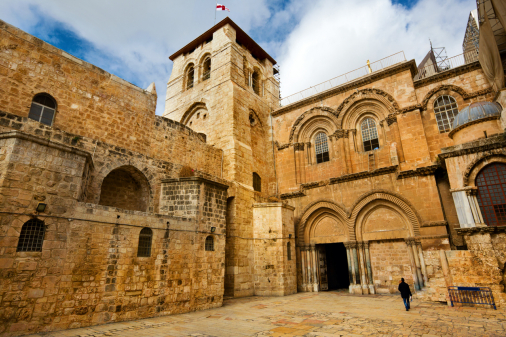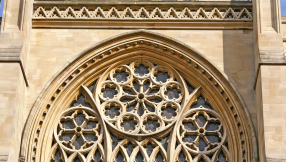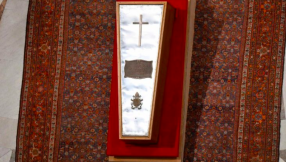
Palestinian Christians this year faced stringent restrictions on their Easter worship in Jerusalem.
Traditionally Israel has allowed Christians living in the West Bank to enter Jerusalem for a week at Easter in order to mark the death and resurrection of Jesus at the places where they actually happened.
This year however, the Israeli authorities said they would only be issuing 6,000 permits for Palestinian Christians to visit sites like the Church of the Holy Sepulchre, which marks the empty tomb of Jesus.
In fact only 4,000 permits were issued, mostly to church leaders, and the permits also came with the restriction that the holder could not stay overnight in the city. Effectively this meant that many permit holders could not attend services as they would have to travel long distances and pass through Israeli checkpoints.
The increased Israeli restrictions are a response to the 7 October attacks in 2023 by Hamas, which resulted in the deaths of over 1,000 Israelis, mostly civilians.
According to Al Jazeera many Palestinians attempting to enter Jerusalem’s Old City have been detained at checkpoints. At previous Easters there have been reports of Israeli police beating Palestinian Christians and pilgrims from overseas as they attempted to reach the Church of the Holy Sepulchre.
Israeli actions since the 2023 attacks by Hamas have been highly controversial. The war that followed the attacks has claimed the lives of well over 50,000 people, mostly Gazans and has reduced large parts of the Gaza Strip to rubble.
While in the US support for Israel among Christians has remained strong, the story is different elsewhere. Recent surveys of Christian views of Israel and Judaism in Britain and Ireland have suggested low levels of support from Christians in those countries, particularly among the young.
Just 19% of young British Christians support Israel in its current conflict, with around a third supporting the Palestinians. In Ireland the figures were 11% supporting Israel and 45% siding with Palestine.













